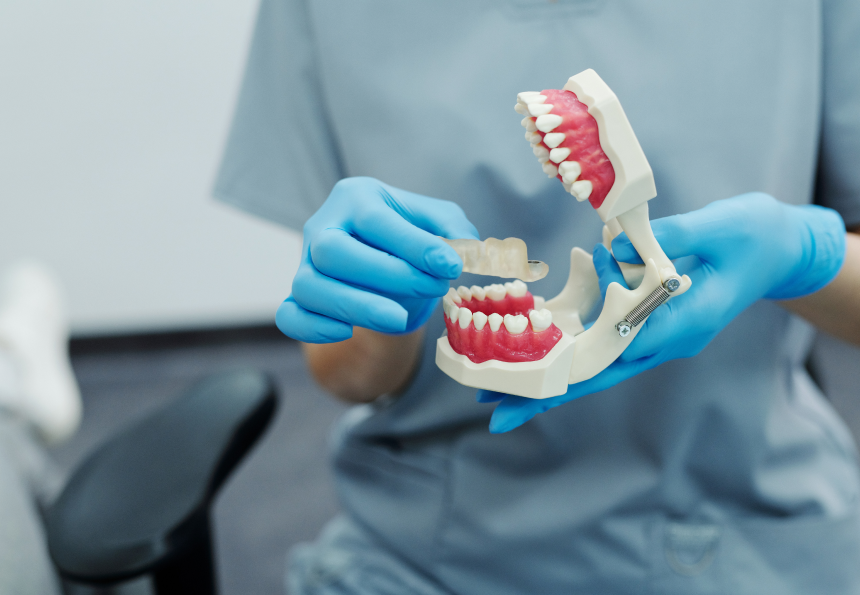Meet Your Pleasant Community Dentist Eugene OR and Their Services
Meet Your Pleasant Community Dentist Eugene OR and Their Services
Blog Article
A Guide to Typical Oral Problems That Need a Dentist's Treatment
Comprehending the array of dental problems that necessitate specialist care is vital for keeping optimum oral health. Toothaches, for instance, can be symptomatic of serious issues such as dental caries, cracked teeth, or abscesses, each calling for certain interventions like dental fillings or root canals. Gum illness, from the onset of gingivitis to a lot more extreme periodontitis, highlights the significance of normal oral examinations and cleansings. Affected wisdom teeth and jaw problems can introduce substantial discomfort and complications. Making certain timely check outs to the dentist can alleviate these concerns effectively, yet just what are the indicators and treatments involved?
Toothaches
Toothaches are a common oral problem that can range from moderate pain to severe pain, frequently showing a hidden concern that calls for professional interest. This pain can come from a selection of sources, including oral tooth cavities, cracked or fractured teeth, and dental abscesses. Each of these conditions presents substantial dangers if left without treatment, potentially bring about a lot more severe problems.
Dental cavities, also recognized as decays, are triggered by the accumulation of plaque that wears down tooth enamel, leading to holes or pits in the influenced teeth. Abscesses are painful infections at the origin of a tooth or in between a tooth and the gum, generally resulting from severe degeneration or neglected tooth cavities.
Reliable treatment of toothaches includes attending to the root reason. This may consist of fillings for tooth cavities, crowns for cracked teeth, or origin canals and prescription antibiotics for abscesses. Early treatment by a dental expert can stop further deterioration and minimize pain, making sure ideal dental health and wellness.
Gum Condition

The primary source of gum tissue illness is bacterial plaque, a sticky, anemic movie that continuously forms on teeth. Poor dental health, smoking, hereditary proneness, and specific medical problems, such as diabetes mellitus, can aggravate the danger of creating periodontal illness. Regular dental check-ups are essential for very early detection and monitoring of this condition.
Therapy for periodontal disease ranges from specialist dental cleansing and scaling to advanced treatments like root planing and gum surgery, depending upon the seriousness. Preserving good dental health methods, including brushing two times daily, flossing, and using an antiseptic mouth wash, can considerably reduce the danger of gum condition and promote much healthier gums.
Tooth Cavities
Tooth cavities, also called dental decays, are a typical oral problem characterized by the damage of tooth enamel because of acid-producing bacteria in the mouth. These microorganisms prosper on sugars and starches from food and drinks, creating acids that progressively erode the enamel, causing dental caries development.
Early-stage dental caries may disappoint symptoms, yet as they advance, they can create tooth pain, level of sensitivity to cool or warm, visible holes or pits in the teeth, and discoloration. If left untreated, tooth cavities can penetrate deeper layers of the tooth, potentially leading to extreme pain, infection, and even missing teeth.
Avoiding dental caries entails a mix site link of good dental hygiene practices and nutritional habits. Regular cleaning with fluoride toothpaste, flossing, and routine dental examinations are critical. Dental practitioners might likewise recommend extra preventive steps, such as fluoride therapies and oral sealers, to protect teeth from decay.
Therapy for dental caries depends upon their severity. Small cavities can be addressed with oral fillings, which bring back the tooth's framework. If the degeneration has actually reached the tooth's pulp, more innovative cases might require crowns or also origin canal treatment. Timely treatment by a dental practitioner is important to protect against problems and keep total oral wellness.
Impacted Knowledge Pearly Whites
Affected wisdom teeth are a common oral issue that happens when the 3rd molars, generally referred to as knowledge teeth, stop working to totally arise or align properly within the mouth. This condition commonly results from inadequate area in the jaw or an uncommon growth angle of the teeth. Impacted wisdom teeth can cause a range of issues, consisting of pain, infection, and damages to adjacent teeth.
When knowledge teeth become impacted, they are frequently partially appeared or continue to be entirely under the gum line. This partial eruption can develop a pathway for germs to go into the periodontals, leading to infections that materialize as swelling, discomfort, and even high temperature (dentists eugene). Furthermore, influenced wisdom teeth can apply stress on neighboring teeth, potentially creating crowding or shifting
A detailed dental exam, normally entailing X-rays, is necessary for detecting affected knowledge teeth. Treatment typically entails surgical extraction, executed by an oral specialist. The treatment aims to reduce discomfort and stop additional problems, such as cysts or damages to surrounding bone frameworks. Post-operative care is important to guarantee appropriate recovery and minimize the danger of infection. Normal oral exams are suggested to check the problem and keep oral health.
Jaw Disorders
Verdict

Oral cavities, additionally understood as decays, are created by the build-up of plaque that deteriorates tooth enamel, leading to holes or pits in the impacted teeth. Abscesses are excruciating infections at the origin of a tooth or in between a tooth and the gum, commonly resulting from severe degeneration or without treatment cavities.
Affected wisdom teeth are a common oral issue that happens when the 3rd molars, frequently referred to as knowledge teeth, fail to fully arise or align correctly within the mouth. Influenced wisdom teeth can lead to a range of problems, consisting of discomfort, damage, and infection to nearby teeth.
Furthermore, impacted knowledge teeth can exert stress on neighboring teeth, potentially triggering crowding or shifting.
Report this page